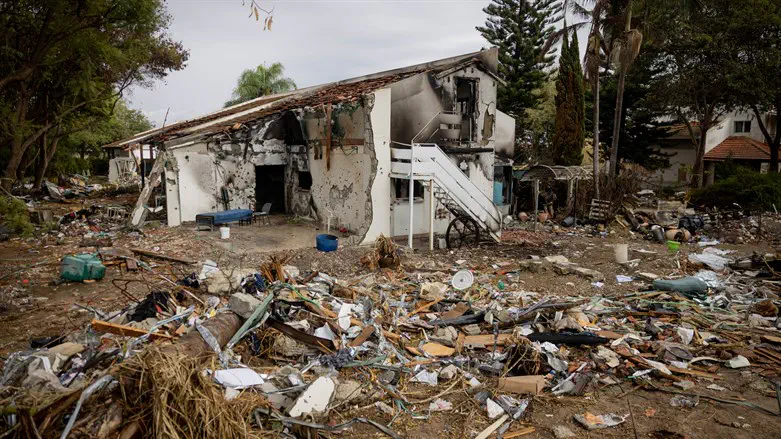
Hundreds of bereaved families are publishing a call for the establishment of a public inquiry committee into the October 7th massacre with broad consensus.
In a letter published by the families and sent to President Isaac Herzog, they express distrust in an inquiry committee whose composition is determined by the Supreme Court. The letter was sent to the President after he recently presented a compromise initiative that leaves the composition of the inquiry committee in the hands of the Supreme Court judges, a matter that the families strongly oppose.
In the letter, the families call to advance a thorough investigation of the totality of failures and to derive optimal lessons, but reserve the date to be determined by the Supreme Court president in light of the politicization of the court in recent years. They also emphasized the court's involvement in security issues in recent years and the refusal to serve that preceded the war, claiming that the court is not suitable to investigate without bias. In addition, the families request representation in the committee that will be established.
The call includes families of the hostages, fallen soldiers, and civilian victims of the war.
"We, over 300 bereaved parents and widows, who lost our most precious in the massacre on Simchat Torah. We demand to establish an independent inquiry committee to investigate the events and the failures that preceded the massacre. The current Supreme Court president, whose appointment ceremony was boycotted by the Prime Minister, the Minister of Justice, and the Speaker of the Knesset - is not an objective entity and therefore cannot be the determining factor in the composition of the committee. This is not an ideal situation but we cannot ignore the reality we have reached."
Join - bereaved parents, spouses, and siblings onl
The families also write, "Among the issues that need to be investigated by the committee: the influence of refusal threats on the erosion of Israeli deterrence in the year leading up to the massacre; the conduct of the military echelon in relation to the political echelon during the discussed period; and the impact of the Supreme Court's intervention in security questions in recent years. These are issues that require complete purity on the part of those determining the nature of the committee and unfortunately this purity does not exist in the current Supreme Court. All the more so regarding issues directly related to the functioning of the Supreme Court."
In contrast to the proposals heard in recent days from the direction of the President of the State, which left full control of the Supreme Court over the composition of the committee, the petition includes a call "to establish a public inquiry committee whose composition will be determined by broad consensus and will include representation from the families of the massacre and war casualties.
In public discourse, several mechanisms have already been raised for determining the composition of such a committee and one of them should be adopted so that the findings and conclusions of the committee receive maximum trust from the public. This is our sacred duty to the many fallen in the massacre and in the battle: to promote a thorough investigation of the totality of failures and to derive optimal lessons, for the future of the Jewish people and the future of the State of Israel," the families concluded.
